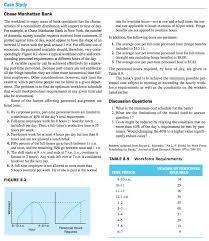Chase Manhattan Bank Case
>>> Download Here <<<
The Chase Manhattan Bank case involved allegations of discrimination against minority borrowers in mortgage lending practices. The case was brought against the bank by the Department of Justice and several advocacy groups who claimed that Chase Manhattan Bank had engaged in redlining, or the practice of denying or charging more for financial services in certain neighborhoods based on the racial or ethnic composition of those areas. The Department of Justice alleged that Chase Manhattan Bank had systematically discriminated against African American and Hispanic borrowers by steering them into subprime loans with higher interest rates and fees, even when they qualified for prime loans. The bank was also accused of neglecting to properly maintain and market properties it owned in minority neighborhoods, contributing to the decline of those communities. In response to the allegations, Chase Manhattan Bank denied any wrongdoing and insisted that it had always complied with fair lending laws. However, in 2011, the bank agreed to pay $53 million to settle the case and implement changes to its lending practices to ensure fairness and equality for all borrowers. The Chase Manhattan Bank case serves as a reminder of the importance of ensuring fair and equal access to financial services for all individuals, regardless of race or ethnicity. It also highlights the need for continued vigilance in monitoring and addressing discriminatory practices in the financial industry.


